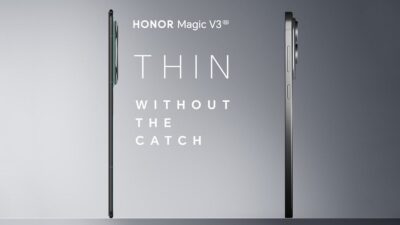If you are disappointed by the lack of landmark diplomatic achievements or big-picture statecraft coming from President Donald Trump’s whirlwind swing through the Middle East this past week, you may have missed the entire point of the trip.
Over the course of four days of pomp and pageantry brought on by the presidential visits to the capitals of Saudi Arabia, Qatar and the United Arab Emirates, the Donald Trump on display was not the insecure and blustery contrarian more comfortable breaking than building.
Nearly five months after starting his second term, the 47th President of the United States took his iconic 747 — the one he would prefer to replace with a far more luxe updated model courtesy of a Qatari royal — to what amounts to a safe space for him, free from the tumult and protests that would have followed him on a visit to nearly any of America’s democratic allies. There, he could relax and be feted by the leaders with whom he feels most comfortable: Autocratic monarchs fond of ostentatious displays of obscene wealth.
With the royals of the Gulf states treating him to a welcome fit for the king his critics say he aspires to be, Trump was firmly in his element as he and members of his travelling entourage, including members of his cabinet and various American captains of industry, put pen to paper on agreements worth a combined trillions of dollars, bolstering industries ranging from energy to defense to artificial intelligence.

In Saudi Arabia, the president was met by Crown Prince Mohammed bin Salman, the kingdom’s de facto leader who his previous administration helped escape consequences for ordering the murder of a Washington Post journalist, and delivered a speech in which he castigated previous administrations for trying to lecture to America’s Arab allies about human rights and democratic values. He also met with the former al-Qaeda affiliate leader turned Syrian president who spent years with a $10 million bounty on his head — offered by the American government — and praised him as a “great young attractive guy,” with a “very strong past” who is “a fighter.”
But Trump wasn’t there to make big foreign policy pronouncements. He was there to make deals, and deals are what he made. During his day in Riyadh, Trump rolled out at least $600 billion in Saudi investments in America, including $20 billion for data centers in the U.S., $5 billion for Boeing jets bound for a Saudi air carrier, and $142 billion worth of new arms sales from America to the kingdom’s armed forces.
And the tech titans who helped power Trump’s 2024 election victory scored as well as they accompanied him to Riyadh, with Nvidia and AMD each announcing deals to sell cutting-edge AI chips to a Saudi-backed startup, Humain, for an AI datacenter.
Amazon founder Jeff Bezos was also on hand as his company rolled out plans for a $5 billion “AI zone” in the kingdom using Amazon Web Services resources.
Not to be outdone, the next day in Qatar saw even more pomp and petrodollars on display, with Trump marveling at the camel and bespoke Tesla Cybertruck escort his motorcade received on the way to the jaw-dropping marble palace of Emir Sheikh Tamim bin Hamad Al-Thani during the first-ever state visit to Doha by an American leader.
“As a construction guy, this is perfect marble — this is what they call perfecto,” Trump said as he looked up and down at the walls and columns of the Al Wajab Palace.
The real estate developer and hotelier turned president, himself no stranger to luxurious construction materials, seemed awestruck by the Al-Thanis’ use of white marble. Yet he was still in his element as he and the Emir sat down to sign what the White House called an agreement “to generate an economic exchange worth at least $1.2 trillion” between Qatar and the United States, with Trump using his customary Sharpie-branded marker and the Emir using a $1,200 Montblanc 149 fountain pen that he quickly handed off to Trump as a memento of the occasion.
According to the White House, the deal includes an agreement for state-owned Qatar Airways to purchase a whopping $96 billion worth of Boeing passenger aircraft, which amounts to up to 210 widebody jets powered by American-made General Electric engines.
Trump’s final day in the region was spent in Abu Dhabi, where he was welcomed by United Arab Emirates president Mohammed bin Zayed, who awarded him the U.A.E.’s highest honor, the Order of Zayed. He and the Emirati leader (often referred to by his initials, MBZ) announced more than $200 billion in new deals between the U.S. and U.A.E., including another $14.5 billion for Boeing to supply widebody jets to Etihad Airways, one of the country’s two flag carriers.
Trump and MBZ also announced the acceleration of the $1.4 trillion investment of Emirati dollars into American companies, including U.A.E. financing of American data centers for AI and what the White House called “historic commitments” by Abu Dhabi to align national security regulations with Washington by preventing diversion of American technology.

The same day in Washington, the Department of Commerce announced a “UAE/U.S. Framework on Advanced Technology Cooperation,” which includes “the launch of a 1GW AI data center, part of a planned 5GW UAE-US artificial intelligence technology cluster in Abu Dhabi to support regional computation demand.”
The Commerce Department press release announcing the deal said the Emirati facility would meet “robust US security standards” while supporting “other efforts to responsibly deploy AI infrastructure, both in the UAE and globally.”
It’s that last part that is worrying American national security hawks and perking up ears in Beijing, as it comes on the heels of the Trump administration’s decision to deep-six a last-minute Biden administration rule meant to constrain Chinese access to cutting edge AI chips.
The so-called “diffusion rule” was meant to govern how tech companies — including Nvidia and AMD — export those high-value chips to prevent them from being diverted to Beijing in violation of export controls that would have prevented their direct sale.
The Trump administration plans to impose their own export control regime on the high-tech processors, but it’s unclear whether it would adopt any of the Biden-era framework that laid out an export licensing scheme that created different rules for allies, adversaries, and those in between.

The president’s close personal ties with leaders such as MBS, MBZ, and Emir al-Thani of Qatar mean the Gulf states are likely to benefit from the relaxed rules. In Trump’s worldview, good personal relations are an indicator of country-to-country geopolitical ties, which means those countries will be treated as friends and allies.
But national security hawks won’t be happy about it because those oil-rich states have also been pursuing closer ties with Beijing — including trade ties that could result in technology transfers of the sort the Biden-era regulations were intended to prevent.



